traffic fines
description: financial penalties imposed for violations of traffic laws or regulations
34 results
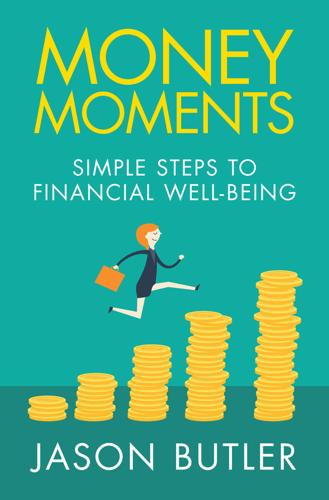
Money Moments: Simple Steps to Financial Well-Being
by
Jason Butler
Published 22 Nov 2017
The researchers matched spending categories on the “Big Five” personality traits – openness to experience (artistic versus traditional), conscientiousness (self-controlled vs easy-going), extraversion (outgoing vs reserved), agreeableness (compassionate vs competitive), and neuroticism (prone to stress vs stable). CATEGORIES WITH THE LOWEST AND HIGHEST SCORES ON EACH OF THE BIG FIVE PERSONALITY TRAITS THE BIG FIVE LOW HIGH Openness to experience Traffic fines, residential mortgages Entertainment, hair and beauty Conscientiousness Gambling, toys and hobbies Home insurance, health and fitness Extraversion Home insurance, accountant fees Entertainment, travel Agreeableness Traffic fines, gambling Charities, pets Neuroticism Stationery, hotels Traffic fines, gambling Source: Cambridge University To identify which of the ‘big five’ personality types you are you can take a free online test – https://www.truity.com/test/big-five-personality-test – which takes only five minutes and there is no need to register or complete the political questions.
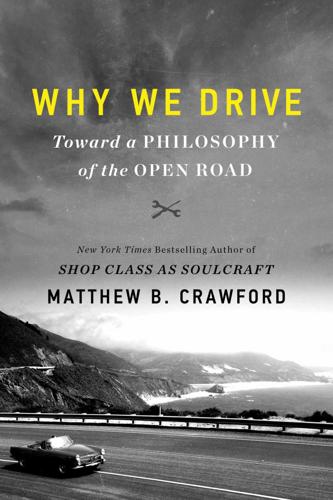
Why We Drive: Toward a Philosophy of the Open Road
by
Matthew B. Crawford
Published 8 Jun 2020
At the same time, experts found, the unnecessary cameras at more than 70 intersections prompted many drivers to slam on the brakes in efforts to avoid an automated ticket, causing a significant increase in injury-related rear-end crashes near cameras throughout the city.” In 2016, the paper reported that “most of those cameras are still snapping photos—and raking in millions of dollars in traffic fines for City Hall—even though Mayor Rahm Emanuel and his transportation chief were given scientific evidence more than a year ago that showed many of the cameras are causing more injuries than they prevent.”3 The firm that installed the cameras, Redflex Traffic Systems, is based in Australia. Now, a company from outside Cook County, to say nothing of another continent, doesn’t just go waltzing into Chicago hoping to make big money without first establishing the right . . . relationships.
…
The case of Chicago, with its cast of colorful characters out of a David Mamet movie, risks diverting us from a more general truth of municipal finance: cities become hooked on any increase in revenue, and have a hard time revising automated traffic enforcement systems, even after their perverse effects have been demonstrated—or even allowing them to be debated in official circles.5 In 2017, the District of Columbia anticipated collecting more than $837 million in traffic fines and fees over the next five years.6 There is a generalization to be drawn from these cases. Sometimes rules are deliberately formulated to be at odds with reasonableness, by parties who have an interest in the conflict this creates. Manipulating amber times is an especially easy way to do this, but there are other tricks of the trade.
…
And the lack of safety benefits likely means that the increase in rear-enders made those intersections more dangerous for Chicago drivers. “The Tribune found 73 camera-equipped intersections throughout the city that fit that criteria. Those cameras have earned the city more than $170 million in traffic fines since the program began.” David Kidwell and Abraham Epton, “Red Light Verdict Casts Harsh Light on Rationale for Cameras,” Chicago Tribune, January 30, 2016, http://www.chicagotribune.com/news/watchdog/redlight/ct-chicago-red-light-cameras-met-0131-20160129-story.html. 4.David Kidwell, “Red Light Camera Trial Offers Rare Insight into City Hall Intrigue,” Chicago Tribune, January 22, 2016, https://www.chicagotribune.com/investigations/ct-red-light-camera-trial-0124-20160122-story.html. 5.Yeshim Taylor, director of the DC Policy Center, said, “Were the automated traffic enforcement revenue to go down, we could make up for it through our larger portfolio of taxes.
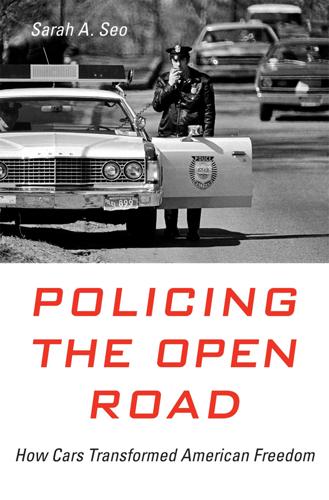
Policing the Open Road
by
Sarah A. Seo
Also tragic is that the themes of poverty and race in the criminal justice system are all too common.6 But another motif, although unnamed, loomed throughout the article. The automobile appeared in nearly every significant setback in Bland’s life. Exorbitant traffic tickets that Bland paid for by “sitting out” in jail. Convictions for driving under the influence and arrest warrants for unpaid traffic fines that severely limited her employment options. Charges for possessing marijuana—her lawyer suspected that Bland was self-medicating—that the police discovered in her car. The automobile stood in the background in The Nation’s biography of Bland, but it played a prominent role as a site of violence, poverty, and discrimination.
…
Every hour on patrol, they chose some individuals for the criminal process while letting others go scot free for equivalent transgressions. They experienced control whenever they stopped out-of-towners who could ill afford to spend a day in court far from home. As late as the 1940s, many cities had a policy of arresting nonresidents because they were unlikely to collect traffic fines once the violator had left the state. Many untold passing tourists surely submitted to any demand in order to continue their journey without further ado. Because of the potential misuse of power, one traffic expert’s guidelines for police specified that “no amount of abuse by the offender should influence the officer to give an appearance notice if it was originally decided to give a warning notice.”
…
The Supreme Court recently held that the police may administer a breath test, but not a blood test, without a warrant as a search incident to arrest for drunk driving. Birchfield v. North Dakota, 136 S. Ct. 2160 (2016). 21. Reich, “New Property,” 741–742, 748–749, 754, 776. 22. This is still true today. Some states suspend driver’s licenses for unsatisfied debts stemming from criminal cases and traffic fines, creating a cycle of debt. People with suspended licenses are forced to drive anyway in order to commute to work to pay off those debts, but then they get hit with more fines for “driving while suspended.” For the undocumented, the choices are just as limited and the consequences especially dire.
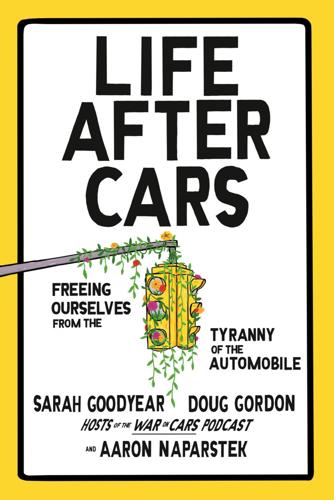
Life After Cars: Freeing Ourselves From the Tyranny of the Automobile
by
Sarah Goodyear
,
Doug Gordon
and
Aaron Naparstek
Published 21 Oct 2025
Bland had a history of traffic stops, which is why Seo used her story to illustrate the pervasive effect that “routine” traffic enforcement can have on a person’s life. “Even though she doesn’t die during the traffic stop…when you look at her entire life and look at the reasons for why she’s unemployed, the reason why she’s self-medicating with marijuana and arrested for marijuana possession, the reason why she has traffic fines that she can’t pay for and goes into debt—all of those setbacks in her life happen in the context of traffic stops,” Seo said. “And that’s because our society is a car society. And the number one place where most Americans encounter the police is in their cars.” Evidence has shown time and again that members of racialized minorities are disproportionately targeted by the police for the kinds of traffic stops that ended so catastrophically for Bland.
…
Nelson as, 147 Anita Kurmann as, 206 of children, 63–64 Donald Appleyard as, 118 early coverage and tracking of, 9–11 grief and trauma of, 97–98 Heather Heyer as, 131 Henry Bliss as first, 6–7, 8 in Japan, 91 as local news, 24 at Ninth Street Brooklyn, NY, 27 provoking tactical urbanism, 208 public tolerance for, 99–100 rates of, 5–6, 95–96 reduction of, 189 reporting tone of, 12–13, 24 standard American unit of mortality (SAUM), 100 tanker trucks, 203 total estimates, 24 understanding changes in, 96–97 Vision Zero, 112 See also motor vehicle crashes; safety traffic fines, 143 traffic laws, 38–42, 141–45, 190 traffic noise. See noise, road traffic stops, 142–45 traffication, 75–77, 83–84, 87–88 Traffication (Donald), 74, 83–84, 104, 121–22 trains, 21, 106, 138, 196 transit busways, 111–12 incentives to use, 229 lack of funding for, 149 options improving health, 106–7 safety of women on, 149–50 unreliable, 145, 147–48 Transport for London, 40–41 Transportation Alternatives, 30 transportation planning benefits from including children in, 61–62, 69 children excluded from, 59–60 exclusionary nature of car-dependent, 137 parking, 163–64 prioritizing people in, 229 women’s needs within, 149, 151–52 trauma from traffic fatalities, 97–98 Trump, Donald, 127, 129 trust, community, 176–77 Turin, IT, 108 Twain, Mark, 139 Tyre Extinguishers, 216–20 U Ultra Low Emission Zone (ULEZ), 112–13 UNICEF, 67 unions, labor, 128 “Unite the Right” rally, 131 United Kingdom, 40–41, 78, 84, 90, 112–13, 229 United Nations Convention on the Rights of the Child, 60 United States, car dependency in, 22–23, 126–27 University of California, Berkeley, 158 University of Chicago, 131–32 University of Colorado, 41 University of Michigan, 58 University of Nebraska–Lincoln, 41 University of South Florida, 40 University of Virginia, 8 University of Washington, 81 Unsafe at Any Speed: The Designed-In Dangers of the American Automobile (Nader), 95, 99, 103 urban decline, 117, 148–49 urban design gender and, 149–52 for increased street safety, 171–72, 171 to keep cars, 182–84 mobility of Black Americans and, 146 for nondrivers, 160–62 for pedestrians in Ghent, BE, 180 traffic effects on, 118 for wheelchair users, 157–60 urbanism, tactical.
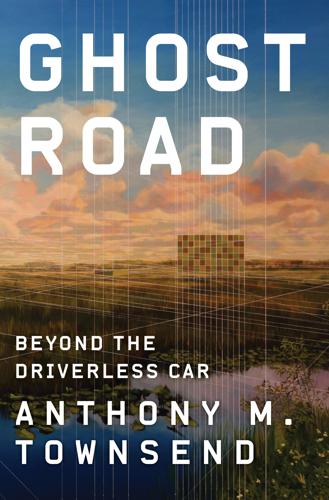
Ghost Road: Beyond the Driverless Car
by
Anthony M. Townsend
Published 15 Jun 2020
How can the power of market forces be harnessed while avoiding the curse of regulatory capture, that corrupt state of affairs when industry leaders seduce their supposed government watchdogs to wield state power in the interests of business? These are the concerns that will keep future mayors up at night. AVs will decimate two essential sources of revenue for many municipalities—parking fees and traffic fines. A survey by the public-administration trade rag Governing magazine found that in 2016, the 25 largest American cities collected nearly $5 billion in automobile-related taxes, fees, and fines—an average of $129 per resident. For Toronto, where the annual take of $100 million in auto fees and fines is modest, composing just 1 percent of the total city budget, the threat was nonetheless noteworthy.
…
See mobility as a service machine learning, 7, 36, 152–53, 235, 238 see also artificial intelligence; deep learning Mad Max (film), 28 MakeSpace, 141, 146 manual tasks and automation, 150–51, 151, 152 Marble, 56 Marcus, Gary, 235, 236 marginal-cost pricing, 166–67, 167 Masabi, 111 materialization, 17, 18–19, 119–20 Matrix, The (film), 88, 237 McGee, Terry, 205, 206 McKinsey, 119, 132–33, 147 megablocks, 209–10 “Menace of the Hour, The” (Luks), 174, 174 Mercedes-Benz, 6, 58, 72, 125 micromobility, 202 Micromobility Robotics, 67 microsprawl, 187, 189, 200–201, 200–205, 243 microtransit benefits of shuttle use, 105–6 birth of, 100–101 CityMobil2, 102–5 failure of first-generation startups, 101 informal transit and, 99–100, 106 microtransit mesh, 107–8, 111, 157 private vs. public shuttles, 106 problems and dilemmas, 106–8 ride-hail and shuttles, 101 shuttle lines in high-tech clusters, 100 smartphone apps and, 101 traffic congestion and, 106 in Trikala, Greece, 102–3 see also driverless shuttles; mobility as a service Mighty AI, 41 Milan, Italy, 168, 209 “milk floats,” 128 Missika, Jean-Louis, 79 mobile airport lounges, 74 mobile phones, 9, 33 see also smartphones Mobileye acquisition by Intel, 8 mobility as a service (MaaS) apps and consumer choice, 90, 91–92, 101 microtransit mesh, 99–108, 111, 157 overview, 90–93 risks for consumer exploitation, 109 taxibot takeover, 94–98 transit systems and, 216 versions of MaaS built by cities, 109–10 see also reprogramming mobility; ticketing in transit systems Montreal, 91, 147 Morgan Stanley, 173 mules automated neighborhood commerce, 142, 199 Cody, 125 e-Palette, 125, 142 last-mile deliveries, 125 maintenance, repair, and remote monitoring, 132 night mules for energy storage, 128–29 overview, 57–58, 60–61 Sprinter delivery vans, 125 Urbanetic, 58 Murnane, Richard, 150, 151, 152 Musk, Elon, 26, 214–15, 216 mutable objects, 49 Nanshan Center (China), 209, 211 Navia (Induct), 103, 104 Navya, 103–4, 105 Neo Cab (video game), 149 neural networks, 36–37, 235 Newsweek future car ad in 1950s, 50–52, 51 New York City Citi Bike docks, 64 congestion pricing, 165–67, 167, 168, 172–73 Regional Plan Association’s traffic separation, 209, 210 street grid, 135–36 traction monopolies, 174, 174, 180 Ng, Andrew, 208, 209 night-shift AVs for energy storage, 128–29 Nilsson, Göran, 73 nonroutine work and automation, 150, 151, 151, 152–53, 154 Nuro, 57–58, 125, 142 Nvidia, 35 Ocado, 137, 158 occupancy grid, 37 O’Dwyer, William, 165 Ola, 177 O*NET occupational classification database, 153 Onewheel, 66 online sales consolidation, 118 On the Waterfront (film), 155–56 O’Reilly, Tim, 178 Organization for Economic Co-operation and Development (OECD), 94, 97, 222 Otto, 68 Page, Larry, 7, 214, 216 parking garages and surface parking, 189–93 “patrol robots,” 79 Pegasus onboard AV computer, 35–36 Perfect Circle, 24 Pet Chauffeur, 95 Philadelphia, 88–89, 90, 91, 175, 180, 185 Philadelphia Traction Company (PTC), 89 piggybacking deliveries, 126–27 Pizza Hut, 135, 142 platoons and platooning, 68–69, 70, 70–71 Poor Law in Great Britain, 162 porters, 220–21 PostBus, 103 Postmates, 56, 140 predicting vs. forecasting the future, 13 Pret a Manger, 139 principles for choices about AV demand equal access, 240–41 don’t get demobilized, 243–44 fight separation, 241–43 find your own uses for self-driving things, 245–46 let down your guard, 246–47 use vehicles—don’t own them, 244–45 Prologis, 197 Provo, 63 Puget Sound Traction, Light & Power Company, 175, 180 Puppy 1, 125 pushing code, defined, 227 radar, 27, 34, 35 RCA (Radio Corporation of America), 5 rebalancing in dockless systems, 64–66 “Rebecca Riots” in Great Britain, 162–63 rebound effect, 144–45, 146–47, 218 Rees, Thomas (Twm Carnabwth), 162 Reeves, Keanu, 237 regulation of AVs challenges to local governments, 213–14 curb pricing and curb-access fees, 220–21, 222–23 managing deliveries and freight, 217–21 public finance, 221–23 revenue from parking fees and traffic fines, 222, 223 Rent the Runway, 140–41, 145 reprogramming mobility exhaust data, 108–12 overview, 87–88, 111–12 risks for consumer exploitation, 109 ticketing in transit systems, 89, 90–91, 93, 109, 110–11 traffic congestion and, 168 see also microtransit; mobility as a service Restaurant Day, 147 retail space in US, Australia, and UK, 117n Ridecell, 101 ride-hail cisia in Roman Empire, 169 impact of taxibot takeover, 94–95 impact on transit systems, 215–16 limited global footprint, 98 microtransit shuttles and, 101 price savings, 96 push to deregulate the taxi business, 40 smartphone apps and, 40 specialization of rides, 95–97, 98 traffic congestion and, 168 see also specific companies risks of driverless revolution automated fleets impact on economic risks, 156–58 overview, 19 risks for consumer exploitation, 109 systemic risks from speculation, 158 Roadie, 126–27 RoboCITY Shuttle, 103, 104 Robosoft Technologies, 103 Rockefeller, John D., 174 Roe, Matthew, 223 RouteAPI MaaS app (Los Angeles), 109–10 routine work and automation, 150, 151, 152 rovers, 66–67, 70–71, 203–5 Saarinen, Eero, 74 safety computer vision and, 231 cruise control and, 24–25 deaths caused by motor vehicles, 9, 38, 156 doubts about AV safety, xv improvement from 1970s to 2005, 33 partially automated driving, 29 Tesla’s Autopilot and, 27–29 Salama, Paul, 171 same-day delivery, 119, 123–24, 132–33, 138 Sam’s Club, 116 Şanal, Alexis and Murat, 189–90 Sanef, 171 Saudi investment, traction monopolies, 178 Scania, 68–69 Schmidt, Terry, 27–28 Schumpeter, Joseph, 137 scooters, 62, 65–66, 67, 70–71 Securing America’s Future Energy (SAFE), 154–55 Segway, 62, 67, 185 Segway-Ninebot, 65–66 self-driving ships, 3–4, 4 self-driving shoes, 52, 53 self-driving suburbs, 13, 14–15, 60, 253–54 self-driving vehicle research appeal of “self-driving” term, 25, 38 DARPA Grand Challenges, 6–7, 68, 104, 133, 230 disengagements and, 41–42 “driverless” vs.
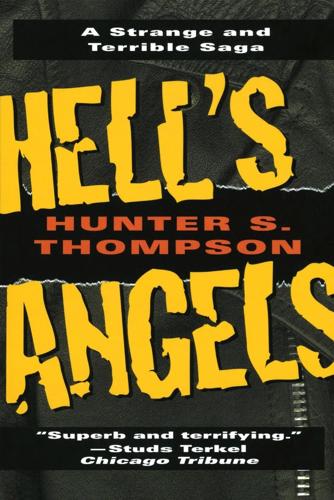
Hell's Angels: A Strange and Terrible Saga
by
Hunter S. Thompson
Published 1 Jan 1966
A more accurate comment on the nature of the Hollister “riot” is the fact that a hastily assembled force of only twenty-nine cops had the whole show under control by noon of July 5. By nightfall the main body of cyclists had roared out of town, in the best Time style, to seek new nadirs in sordid behavior. Those who stayed behind did so at the request of the police; their punishment ranged from $25 traffic fines to ninety days in jail for indecent exposure. Of the 6,000 to 8,000 people supposedly involved in the fracas, a total of 50 were treated for injuries at the local hospital. (For a better perspective on motorcycle riots it helps to keep in mind that more than 50,000 Americans die each year as the result of automobile accidents.)
…
“Angels, and people who wish they were Angels.” Yet not even Magoo really believes that. When the party swings right, with plenty of beer and broads, being an Angel is a pretty good way to go. But on some of those lonely afternoons when you’re fighting a toothache and trying to scrape up a few dollars to pay a traffic fine and the landlord has changed the lock on your door until you pay the back rent … then it’s no fun being an Angel. It’s hard to laugh when your teeth are so rotten that they hurt all the time and no dentist will touch you unless the bill is paid in advance. So it helps to believe, when the body rot starts to hurt, that the pain is a small price to pay for the higher rewards of being a righteous Angel.
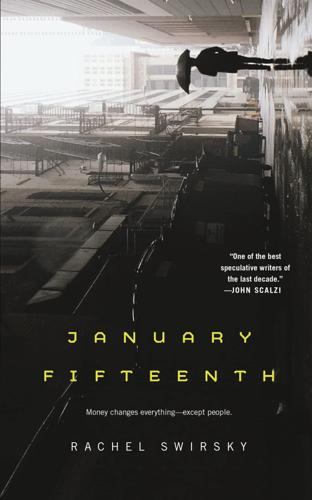
January Fifteenth
by
Rachel Swirsky
Published 13 Jun 2022
Sarah guided Agnes to the check-in to enter their names so they could wait to be called. Voices ebbed and flowed, blending conversations together. Weird, magnified echoes from the old machines mingled with sentences that surfaced and sank like waves through the ocean of sound. Name and ID, please. Sign here, please. No, I can’t reverse the traffic fines—they’re applied before the disbursements get to us. Patricia Walther, mother of Eden Walther, Nick Walther, Galilee Walther. A woman in a lavender dress went between groups, addressing individual women in a voice that never quite rose to comprehensibility. She tried to give out glossy brochures and ask the women to put information on her tablet.
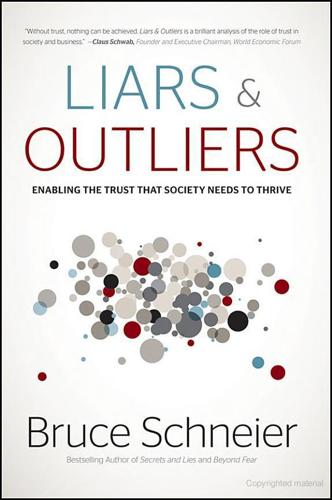
Liars and Outliers: How Security Holds Society Together
by
Bruce Schneier
Published 14 Feb 2012
Fixed financial penalties are regressive. Like everything else about the speeding trade-off, the cost of a speeding ticket is relative. If you're poor, a $100 speeding ticket is a lot of money. If you're rich, it's a minor cost of the trip.6 Finland, Denmark, and Switzerland address the problem by basing traffic fines on the offender's income. Wealthy people in those countries have regularly been issued speeding tickets costing over $100,000. You might disagree with the system as a matter of policy, but it certainly is a more broadly effective societal pressure. Jail time for speeders accomplishes much the same thing.
…
Braver (2007), “Do Speeding Tickets Reduce the Likelihood of Receiving Subsequent Speeding Tickets? A Longitudinal Study of Speeding Violators in Maryland,” Traffic Injury Prevention, 8:26–34. uninsured drivers Ray Massey (23 Nov 2010), “Uninsured Drivers Kill 160 People a Year but Face Inadequate Fines as Low as £50,” Daily Mail. basing traffic fines British Broadcasting Corporation (14 Jan 2002), “Nokia Boss Gets Record Speeding Fine,” BBC News. British Broadcasting Corporation (10 Feb 2004), “Finn's Speed Fine Is a Bit Rich,” BBC News. Jason Paur (8 Jan 2010), “Swiss Slap Speeder With $290K Fine,” Wired. British Broadcasting Corporation (12 Aug 2010), “Swede Faces World-Record $1m Speeding Penalty,” BBC News.
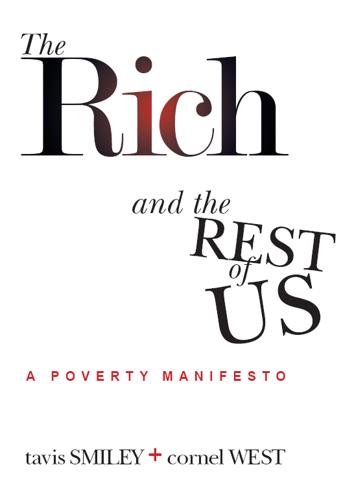
The Rich and the Rest of Us
by
Tavis Smiley
Published 15 Feb 2012
With these dues being 100 percent garnishable, it’s little wonder that 70 percent of former prisoners are returned to prison within three years.79 For decades, most Americans have turned a blind eye to the injustices of the justice system. What has not been given much thought, regrettably, is the link between poverty and prisons. Prison becomes a real possibility when people can’t pay traffic fines, miss child support payments and court dates, and start bouncing checks. As previously stated, more than 6 million people rely on food stamps as their only source of income. When faced with the decision to buy food or sell some of their stamps for gas, utility bills, or medicine, many honest Americans opt for the latter.
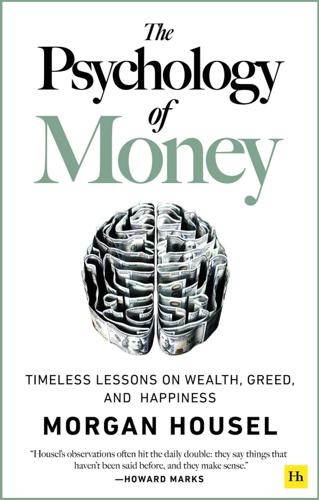
The Psychology of Money: Timeless Lessons on Wealth, Greed, and Happiness
by
Morgan Housel
Published 7 Sep 2020
It’s not a price tag you can see, so when the bill comes due it doesn’t feel like a fee for getting something good. It feels like a fine for doing something wrong. And while people are generally fine with paying fees, fines are supposed to be avoided. You’re supposed to make decisions that preempt and avoid fines. Traffic fines and IRS fines mean you did something wrong and deserve to be punished. The natural response for anyone who watches their wealth decline and views that drop as a fine is to avoid future fines. It sounds trivial, but thinking of market volatility as a fee rather than a fine is an important part of developing the kind of mindset that lets you stick around long enough for investing gains to work in your favor.
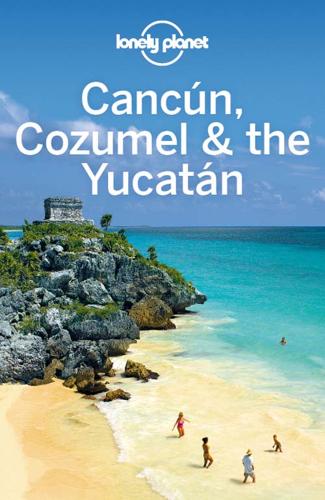
Lonely Planet Cancun, Cozumel & the Yucatan (Travel Guide)
by
Lonely Planet
,
John Hecht
and
Sandra Bao
Published 31 Jul 2013
Driving during the rainy season (usually from May to October) can be challenging to say the least, especially along dirt roads in rural and coastal areas. Be especially wary of Alto (Stop) signs and speed bumps (called topes, vibradores or reductores de velocidad) and holes in the road. They are often not where you’d expect and missing one can cost you a traffic fine or car damage. Speed bumps are also used to slow traffic on highways that pass through built-up areas – they are not always signed and some of them are severe! Driving on a dark night is best avoided since unlit vehicles, rocks, pedestrians and animals on the roads are common. Also, hijacks and robberies can occur (stay particularly alert while driving in the vicinity of the Mexico-Guatemala border).
…
You don’t have to pay a bribe, and corrupt cops would rather not work too hard to obtain one. You can also ask to see documentation about the law you have supposedly broken, ask for the officer’s identification, ask to speak to a superior, and/or note the officer’s name, badge number, vehicle number and department (federal, state or municipal). Pay any traffic fines at a police station and get a receipt, then if you wish to make a complaint head for a state tourist office. Hitchhiking Hitchhiking is never entirely safe in any country and even in Mexico’s relatively safe Yucatán region it’s best avoided. Travelers who decide to hitch should understand that they are taking a small, but potentially serious, risk.

Lonely Planet Cancun, Cozumel & the Yucatan (Travel Guide)
by
Lonely Planet
,
John Hecht
and
Lucas Vidgen
Published 31 Jul 2016
Driving during the rainy season (usually from May to October) can be challenging to say the least, especially along bumpy dirt roads in rural and coastal areas. Be especially wary of Alto (Stop) signs and speed bumps (called topes, vibradores or reductores de velocidad) and holes in the road. They are often not where you’d expect and missing one can cost you a traffic fine or car damage. Speed bumps are also used to slow traffic on highways that pass through built-up areas – they are not always signed and some of them are severe! Driving on a dark night is best avoided – potential hazards include unlit vehicles, rocks, pedestrians and animals on the roads. Also, hijacks and robberies can occur (stay particularly alert while driving in the vicinity of the Mexico–Guatemala border).
…
Remember that you don’t have to pay a bribe, and corrupt cops would rather not work too hard to obtain one. You can also ask to see documentation about the law you have supposedly broken and always get the officer’s name, badge number, vehicle number and department (federal, state or municipal). Pay any traffic fines at a police station and get a receipt, then if you wish to make a complaint head for a state tourist office. Street names are often difficult to find outside city centers. Some are labeled on telephone posts or walls of corner buildings. Hitchhiking Hitchhiking is never entirely safe in any country and even in Mexico's relatively safe Yucatán region it's best avoided.
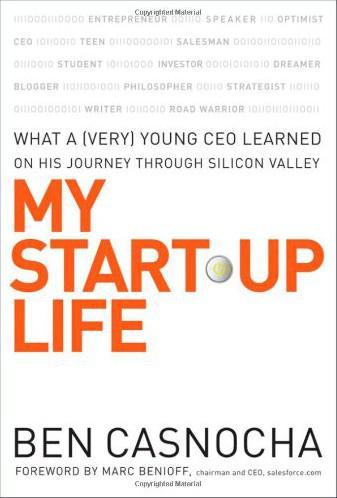
My Start-Up Life: What A
by
Ben Casnocha
and
Marc Benioff
Published 7 May 2007
The 1990s technology bubble had burst and there were quite a few entrepreneurs doing some serious thinking . . . only theirs was disbelief over how they could have blown through $50M in a couple years, whereas mine was whether I wanted to really be someone different or instead spend more time with school friends talking about who were the hottest girls. (If you don’t remember sixth-seventheighth grades, this is the focus of most boy-to-boy conversations.) By August I realized I had learned a lot about how government works and how entrepreneurs create companies. Unlike the many Americans who aren’t sure how income taxes, property taxes, or traffic fines are spent, I had a growing understanding of our state and local government system. I appreciated the tireless, if sometimes inefficient, work of public servants, especially after a thirtyminute harangue from a traffic engineer who described in bloody detail how he had placed sensors under the road to time the red light exactly . . . all in response to my client’s complaint.
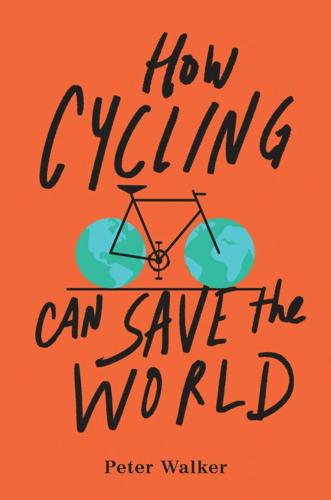
How Cycling Can Save the World
by
Peter Walker
Published 3 Apr 2017
Perhaps the biggest such leap of faith was London’s first generation of so-called Cycle Superhighways, launched amid some fanfare in 2010 as a network of quick commuting routes radiating out from the city center. These were delineated by just a bright blue strip, with nothing beyond the slight possibility of a traffic fine to keep cars and trucks out. This brought inevitable and very occasionally tragic results. A coroner examining the deaths of two cyclists on the routes warned that a painted lane could “lull riders into a false sense of security.”11 After another fatality, my newspaper sent me out to make a film, showing what it was like to ride the painted superhighway.12 It was fairly basic—me giving a running commentary to the ride into a clip microphone while a series of GoPro action cameras strapped to me and the bike showed the scene—but the eventual footage of vans and trucks whizzing past and veering across me into the paint demarcation was eloquent.
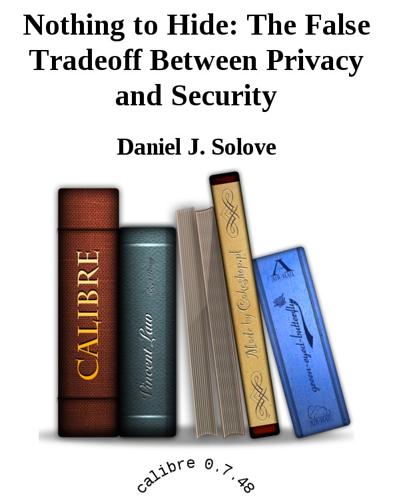
Nothing to Hide: The False Tradeoff Between Privacy and Security
by
Daniel J. Solove
Published 28 Jun 2011
Over in New Jersey, where Athan was now living, he received a letter from the law firm Wingstrand Hargrove Kinner. He was happy to learn that he was entitled to some money. The letter stated: I 111 Constitutional Rights Dear Mr. Athan, A class action lawsuit has been filed against several Washington State counties and cities. These lawsuits are based on the over charging of traffic fines by local municipalities between the dates of 1987 and 1994. The records that we received indicate you may be due compensation from this over billing. The compensation may include reimbursement of fines paid, interest due and damages. You must respond by March 21, 2003 to confirm that you wish to be included in the class membership.
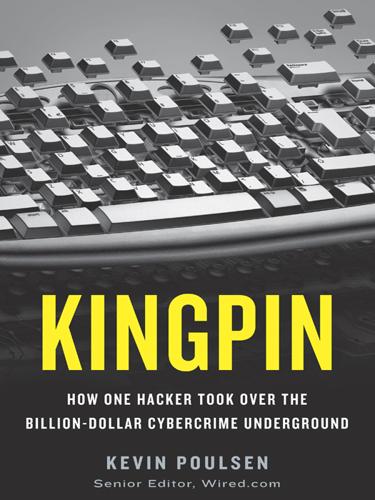
Kingpin: How One Hacker Took Over the Billion-Dollar Cybercrime Underground
by
Kevin Poulsen
Published 22 Feb 2011
At the time it was the longest U.S. sentence ever handed out to a hacker. 36 Aftermath y the time Max was sentenced, the Secret Service had identified the mystery American hacker who’d made Maksik into the world’s top carder, and he was poised to get a sentence that would make Max’s look like a traffic fine. The big break in the case came from Turkey. In July 2007, the Turkish National Police learned from the Secret Service that Maksik, twenty-five-year-old Maksym Yastremski, was vacationing in their country. An undercover Secret Service operative lured him to a nightclub in Kemer, where police arrested Yastremski and seized his laptop.
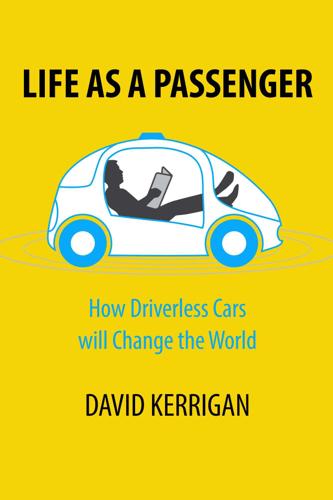
Life as a Passenger: How Driverless Cars Will Change the World
by
David Kerrigan
Published 18 Jun 2017
Technology has already impacted revenues with apps designed to make it easier for people to comply with regulation - Even the seemingly small advance such as the ability to pay for parking meters via an App a led to a $6 million decrease in ticket revenue in Washington, D.C., in one year.[341] This could very well revolutionize traffic regulation and management. While State and local governments, for example, would lose the revenue from traffic fines, their payrolls might also shrink as demand for highway patrol officers plummets and court time is freed up from having to deal with traffic offenses. Authorities may still seek to replace the lost revenue—perhaps with infrastructure usage fees? Traffic citations make a very significant contribution to local governments.
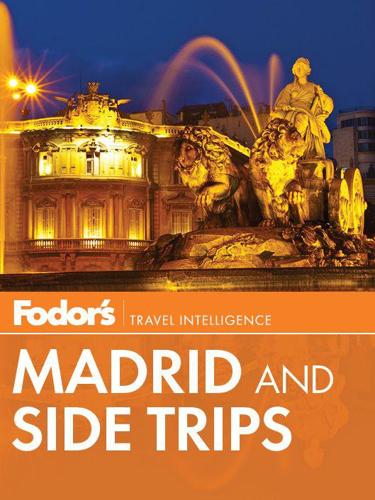
Fodor's Madrid and Side Trips
by
Fodor's
Published 16 May 2011
National Car Rental/Atesa (800/227–7368, 902/100101 in Spain | www.atesa.es). Pepe Car(807/414243 in Spain | www.pepecar.com). Your own driver’s license is valid in Spain, but U.S. citizens are highly encouraged to obtain an International Driving Permit (IDP). The IDP may facilitate car rental and help you avoid traffic fines—it translates your state-issued driver’s license into 10 languages so officials can easily interpret the information on it. Permits are available from the American Automobile Association. Driving is the best way to see Spain’s rural areas. The main cities are connected by a network of excellent four-lane divided highways (autovías and autopistas), which are designated with the letter A and have speed limits—depending on the area—of between 80 kph (50 mph) to 120 kph (74 mph).
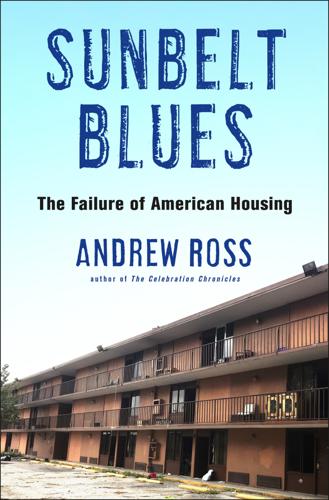
Sunbelt Blues: The Failure of American Housing
by
Andrew Ross
Published 25 Oct 2021
Alongside the underpaid service industry workers, I found other casualties of America’s low-road economy: “families in transition” who had lost their homes to foreclosure, disabled and elderly people struggling to subsist on thin government checks, economic fugitives carrying debt burdens from Frostbelt states, climate refugees from the Caribbean, and dealers pushing relief from the pain. Documenting their hardship and their aspirations took me further and further into Osceola’s version of the tollbooth life, where rent is only the largest of a multitude of monthly fees—healthcare premiums, tuition and childcare bills, traffic fines, data charges, sales taxes, administrative fees, processing costs, property assessments, and debt service payments—that are extracted from wages hovering around the federal poverty line. So what I had originally intended as a dutiful check-in on Celebration’s progress turned into a much longer and different kind of report on the national housing crisis, as seen through the lens of challenges faced by one of the fastest-growing counties in the United States.
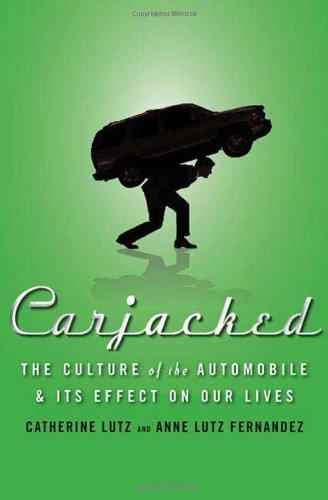
Carjacked: The Culture of the Automobile and Its Effect on Our Lives
by
Catherine Lutz
and
Anne Lutz Fernandez
Published 5 Jan 2010
They may drive with a broken windshield or a spare tire permanently on one wheel or they may periodically be without use of the car when it breaks down because they cannot afford the repairs. Parking tickets can push a person living on the edge out of automobility: a study of nondrivers in Milwaukee found that most of them lost their licenses or registrations due to unpaid traffic fines rather than for serious moving violations.8 In traffic court in Providence, Rhode Island, a large number of cases involve unpaid fines on cars needing repairs. As one of the defendants, a young Hispanic man in his early thirties, explained to the judge: “I received a ‘fix it’ ticket.” This was an $85 fine he was given because the policeman who pulled him over discovered his interior light was not working.
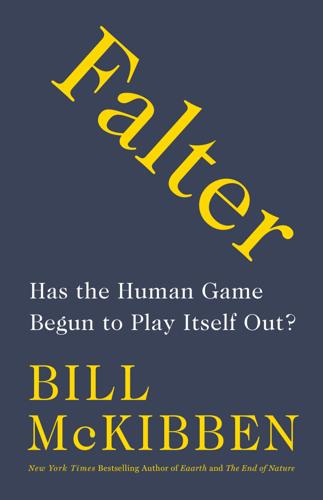
Falter: Has the Human Game Begun to Play Itself Out?
by
Bill McKibben
Published 15 Apr 2019
But it’s a remarkably different flavor of capitalism. In fact, if you wanted, you could call it democratic socialism. It comes with high taxes and generous social services, with thorough government regulation and a commitment to rough equality. (Just to give the smallest example, Scandinavians sensibly base traffic fines on a person’s annual income: a Finnish cell phone magnate recently paid $103,000 for riding his motorcycle the metric equivalent of forty-five miles per hour in a thirty-miles-per-hour zone.) The kind of capitalism turning America into a creepy jungle is very different: call it laissez-faire, or neoliberalism, or “getting government out of the way,” or being “corporate-friendly.”
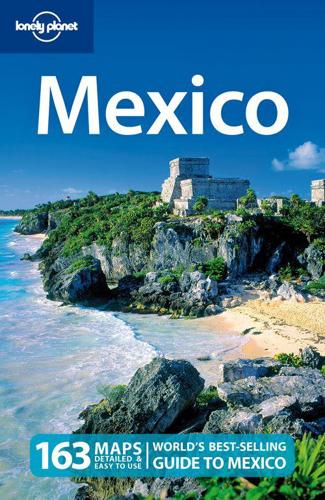
Lonely Planet Mexico
by
John Noble
,
Kate Armstrong
,
Greg Benchwick
,
Nate Cavalieri
,
Gregor Clark
,
John Hecht
,
Beth Kohn
,
Emily Matchar
,
Freda Moon
and
Ellee Thalheimer
Published 2 Jan 1992
Car & Motorcycle Touring Mexico City by car is strongly discouraged, unless you have a healthy reserve of stamina and patience. Even more than elsewhere in the country, traffic rules are seen as suggested behavior. Red lights may be run at will, no-turn signs are ignored and signals are seldom used. On occasion you may be hit with a questionable traffic fine, a routine means for traffic cops to increase their miserly salaries. Nevertheless, you may want to rent a car here for travel outside the city. Avoid parking on the street; most midrange and top-end hotels have guest garages. DRIVING RESTRICTIONS To help combat pollution, Mexico City operates its ‘Hoy No Circula’ (Don’t Drive Today) program, banning many vehicles from being driven in the city between 5am and 10pm on one day each week.
…
If Mexican police wrongfully accuse you of an infraction (as they have been known to do in the hope of obtaining a bribe), you can ask for the officer’s identification, to speak to a superior or to be shown documentation about the law you have supposedly broken. You can note the officer’s name, badge number, vehicle number and department (federal, state or municipal). Pay any traffic fines at a police station and get a receipt, then make your complaint at Sectur or a state tourist office. Return to beginning of chapter MAPS GeoCenter, Nelles, ITM and the AAA (American Automobile Association) all produce good country maps of Mexico that are suitable for travel planning and available internationally for between US$6 and US$15.
…
Driving on a dark night is best avoided, since unlit vehicles, rocks, pedestrians and animals on the roads are common, and hijacks and robberies do occur. In towns and cities and on rural roads, be especially wary of Alto (Stop) signs, topes (speed bumps) and holes in the road. They are often not where you’d expect, and missing one can cost you in traffic fines or car damage. ‘Tope’ or ‘Vibradores’ signs warn you of most speed bumps: the deadly ones are the ones with no warning signs! There is always the chance that you will be pulled over by Mexican traffic police for an imaginary infraction. If this happens, stay calm and polite. You don’t have to pay a bribe, and acting dumb and not understanding Spanish may eventually make the cop give up.
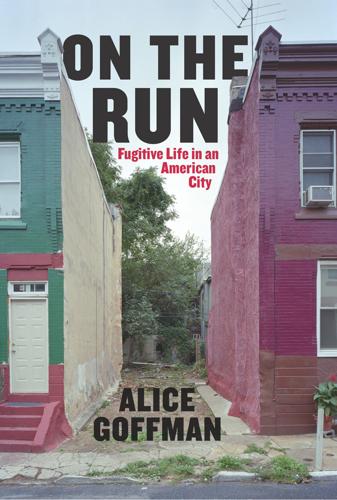
On the Run: Fugitive Life in an American City
by
Alice Goffman
Published 30 Apr 2014
Over the course of raids and interrogations, the officers make women realize that their daily lives are full of crimes, crimes the police are well aware of, and crimes that carry high punishments, should the authorities feel inclined to pursue them. When the police came for Mike’s cousin, they told his aunt that the property taxes she hadn’t paid and some long-overdue traffic fines constituted tax evasion and contempt of court. The electricity that she was getting from her neighbor two doors down, via three joined extension cords trailed through the back alley (because her own electricity had long been cut off, and for the use of which she was babysitting her neighbor’s two children three times a week), constituted theft, a public hazard, and a violation of city code.
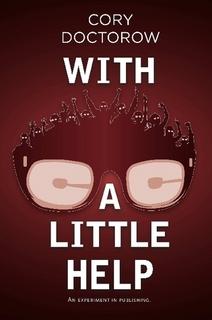
With a Little Help
by
Cory Efram Doctorow
,
Jonathan Coulton
and
Russell Galen
Published 7 Dec 2010
If she's getting stuck in traffic, it's because there's a lot of traffic. The ant-nets route five thousand percent more traffic than our nation's highways ever accommodated without them, and they've increased the miles-per-hour-per-capita-per-linear-mile by six thousand, four hundred percent. You're stuck in traffic? Fine. I get stuck sometimes too. But for every hour you spend stuck today, you're saving hundreds of hours relative to the time your parents spent in transit. 1123 "The other side of this debate are asking for something impossible: they want us to modify the structure of the network, which is a technical construct, built out of bits and equations, to accommodate a philosophical objective.
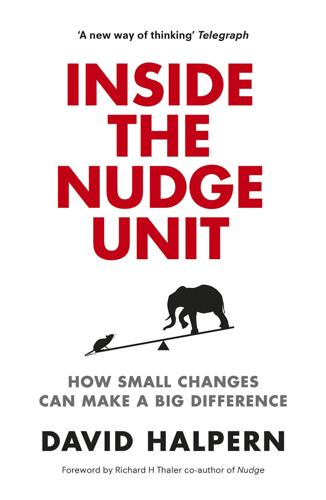
Inside the Nudge Unit: How Small Changes Can Make a Big Difference
by
David Halpern
Published 26 Aug 2015
It was not just doctors that responded to the adapted messages – we found similar uplifts in payments in relation to other professional groups too (such as everyone’s favourite, plumbers). We found that even quite simple cues can have a significant impact. In another trial, led by Rory Gallagher in Sydney with the state of New South Wales, we adapted a letter reminding people to pay overdue traffic fines, the main addition being to add a stamp at the top of the letter reading ‘pay now’ in red letters. This led to repayments without further action rising from around 14 to 17 per cent, worth around $10 million a year and, equally importantly, saving residents around $4 million a year in extra penalties and preventing more than 8,000 drivers a year from having their driving licences cancelled or suspended.
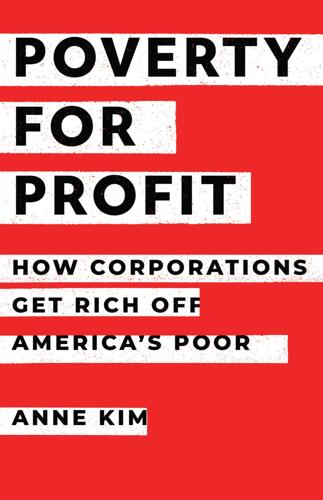
Poverty for Profit
by
Anne Kim
One man who’d lost his license, George H., said he had to leave the house at 5:30 every morning with his then-five-year-old son to make it to the center on time.211 He took two buses and the subway to drop off his son at day care before getting to class at 7:45. George had owed about $700 in unpaid traffic fines when he left prison, which was why his license had been suspended. The staff at CivicWorks helped him work out a settlement—thirty-five hours of community service to erase $600 of tickets—which he had just completed. “It was a weight on my shoulders for years,” he said. Another trainee, Jimmy G., said his car insurance lapsed while he was in prison, subjecting him to fines that accrued into thousands of dollars by the time he was released.
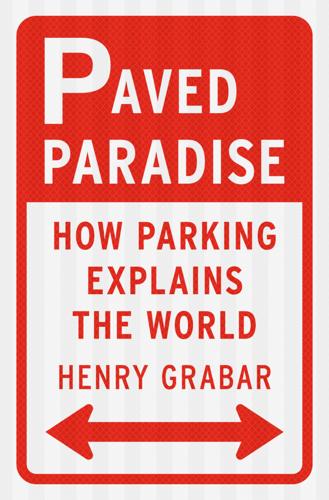
Paved Paradise: How Parking Explains the World
by
Henry Grabar
Published 8 May 2023
Go to note reference in text The moniker maid: James Longhurst, “Street Privilege: New Histories of Parking and Urban Mobility,” The Metropole (Blog), April 29, 2020, themetropole.blog/2020/04/29/street-privilege-new-histories-of-parking-and-urban-mobility. Go to note reference in text Police responded with a spree: “Meter Maid Pays $10 Traffic Fines,” New York Times, September 7, 1960. Go to note reference in text she had made “unreasonable noise”: C. Gerald Fraser, “City Meter Maids Are Plagued by the Public’s Insults, Harassments and Assaults,” New York Times, September 28, 1969. Go to note reference in text For the rest of his life: “Rebroadcast: An Interview with Mike Cataneo and a Conversation about the Parking Ticket Heard Around the World,” December 24, 2019, in The Parking Podcast, podcast, produced by Isaiah Mouw, MP3 audio, 19:34, parkingcast.com/blog/rebroadcast-an-interview-with-mike-cataneo-and-a-conversation-about-the-parking-ticket-heard-around-the-world.
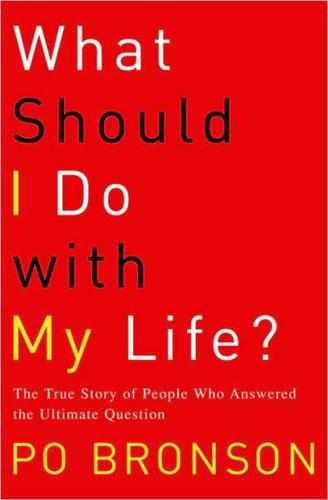
What Should I Do With My Life?
by
Po Bronson
Published 2 Jan 2001
Cash advance shops outnumber bank branches. A trenchant crack problem plagues the neighborhood on the other side of the railroad tracks. You can’t get any men to work during bow hunting season. Conversations focus on hunting, football, and who’s screwing who. The local weekly newspaper lists every traffic fine and charge brought by the local police. Most of the jobs listed are for drivers. A truck driver takes home $8.50 an hour, the women at the catfish processing plant a little less, and the seining crew, which dredges the ponds, earns minimum wage. A straw boss earns anywhere from $40,000 to $100,000.
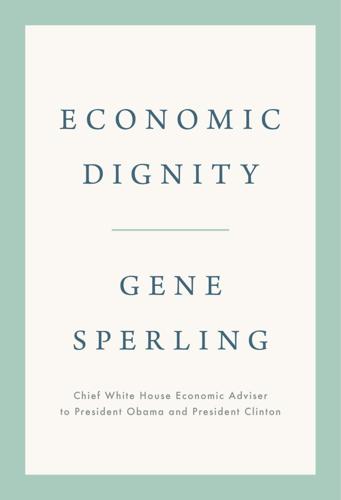
Economic Dignity
by
Gene Sperling
Published 14 Sep 2020
Outstanding debt from these fines and fees can prevent many from having a driver’s license, a necessity for many Americans to find and maintain a job; plus, many jobs outright require a driver’s license. The vast majority of states allow for the suspension of licenses for unpaid court debt and traffic fines,84 and a survey of fifteen states found that eight of those states take away driver’s licenses when individuals fail to pay monetary sanctions,85 a direct roadblock to maintaining employment to provide for self and family. Some feel they have no choice and drive to work on a license suspended due to criminal justice debt at the risk of further incarceration.
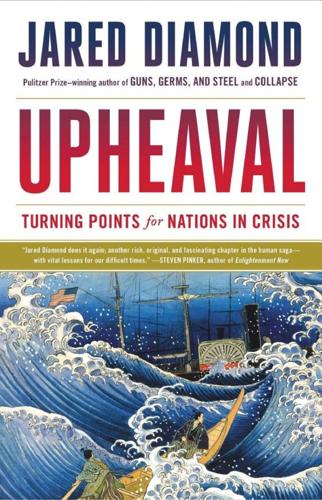
Upheaval: Turning Points for Nations in Crisis
by
Jared Diamond
Published 6 May 2019
The percentage of potential voters who possess the required photo ID is considerably higher (depending on the age group, up to three times higher) for whites than for African-Americans or Latinos, and higher for rich people than for poor people. The reasons are banal ones with no direct relationship to deserving the right to vote: e.g., poorer people, and African-Americans in general, are more likely not to have a driver’s license because they haven’t paid a traffic fine. The state of Alabama closed its Department of Motor Vehicle (DMV) offices (the offices that issue driver’s licenses) in counties with large African-American populations. In response to the resulting public outcry, Alabama re-opened those offices—but for just one day per month. The state of Texas maintained DMV offices in only one-third of its counties, forcing potential voters to travel up to 250 miles if they were determined to satisfy the photo ID requirement by getting a driver’s license.
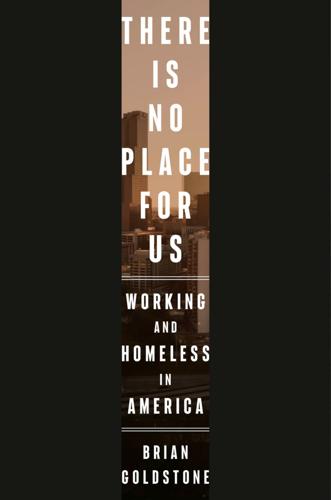
There Is No Place for Us: Working and Homeless in America
by
Brian Goldstone
Published 25 Mar 2025
On one rainy afternoon, she went to a bookstore in the mall and, drawn to the title, purchased Just as I Am, a memoir by Cicely Tyson, who had recently passed away. She spent the rest of the day reading it in the food court, riveted. But there was one thing Cass was doing to break out of her rut. She was trying to get her driver’s license reinstated fourteen years after it had been suspended. She had lost it when she was unable to pay some overdue traffic fines; there just hadn’t been a moment during those years, she said, when she could spare the $229. But she had finally gone to the courthouse to pay the fine, and then she took a bus to the DMV to obtain a handbook. She had been studying for the driving test ever since. She told everyone that by her next birthday she would have her license.
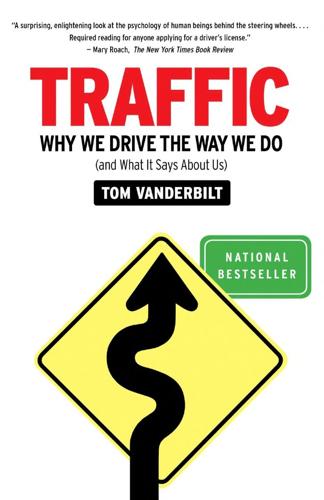
Traffic: Why We Drive the Way We Do (And What It Says About Us)
by
Tom Vanderbilt
Published 28 Jul 2008
Lode Vereeck, a Belgian economist at Hasselt University, has noted that in survey after survey of people’s attitudes toward traffic regulations, Belgians seem resistant; they’re more hostile than their neighbors to things like seat-belt laws, lower speed limits, and drunk-driving laws (and also more likely to drink before driving, if surveys can be believed). At the same time, according to Vereeck, the number of violations recorded by Belgian police dropped from 1993 to 1999—even though Belgium’s roads clearly did not get safer. A driver was also less likely to get a traffic fine in Belgium than in its neighbor to the north: The Netherlands, with roughly 50 percent more people (and a lower motorization rate), issued nearly eight times the number of tickets in 2000. While the laws in Belgium and the Netherlands may be similar, it seems there is a different attitude to following and enforcing those laws.
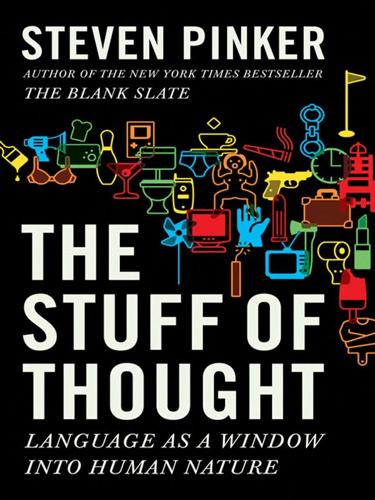
The Stuff of Thought: Language as a Window Into Human Nature
by
Steven Pinker
Published 10 Sep 2007
If Maxim Man is lucky and is facing a dishonest cop, the cop will accept the bribe and send him on his way without a ticket. But if he is unlucky and is facing an honest cop, he will be handcuffed, read his rights, and arrested for bribery. The rational choice between bribing and not bribing will depend on the size of the traffic fine, the proportion of bad and good cops on the roads, and the penalties for bribery, but neither choice is appealing. Maxim Man is caught between the devil and the deep blue sea. But now consider a different driver, Implicature Man, who knows how to implicate an ambiguous bribe, as in “So maybe the best thing would be to take care of it here.”
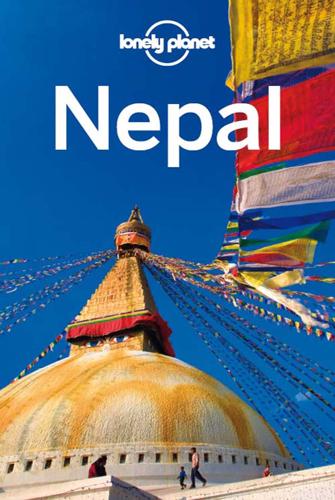
Nepal Travel Guide
by
Lonely Planet
For Rs 600 per day you’ll get a 150cc Indian-made Hero Honda or Pulsar road bike, which is generally fine for road trips in the Kathmandu Valley. Officially, you need an international driving licence to ride a motorbike in Nepal. This regu-lation hasn’t been enforced for years but recent reports suggest traffic police are targeting foreigners on this and other hitherto disregarded traffic violations in an attempt to raise funds. A traffic fine will set you back around Rs 1000. Motorcycles can be great fun outside the town, once you master the traffic. The main problem is getting out of Kathmandu, which can be a stressful, choking and dangerous experience. You will need a pair of goggles and some kind of face mask (available in most pharmacies).